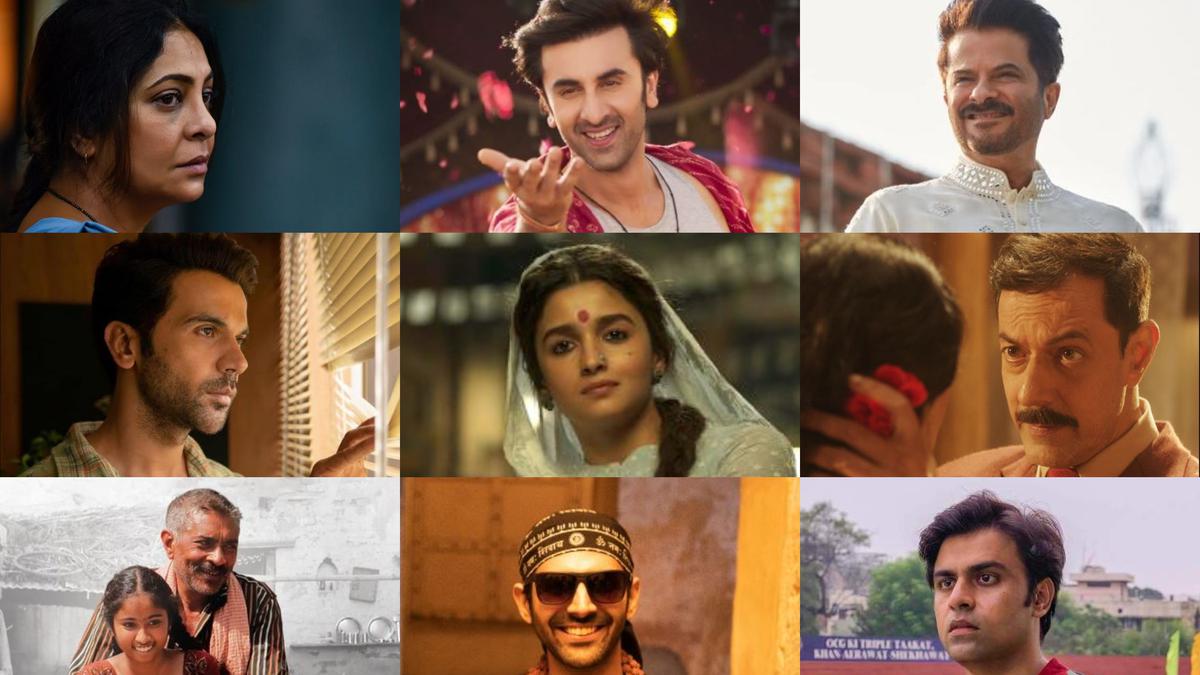
The best and worst of Bollywood in 2022: How Hindi cinema fared post the pandemic
The Hindu
The post-pandemic Hindi film industry is still grappling with new challenges and trying to get over some pernicious problems; here is a lowdown on a year where there was a lot to watch, but little to recollect
Towards the end of 2021, when one reached Delite Diamond — a single-screen theatre at the cusp of Old Delhi — to watch the press show of Ranveer Singh’s much-awaited 83, a flummoxed usher asked the critics to wait because the previous show was houseful. As COVID-19 was very much around, one got curious as to what made the public shed fear in this part of the world. Moments later, a sea of smitten audience emerged; they couldn’t pronounce ‘Allu Arjun’, but they definitely knew the difference between the flower they had been sold and the fire that had just engulfed them.
It has its share of flaws, but the mass appeal of the southern masala enveloped the Hindi film industry in 2022. The dubbed versions of RRR, Ponniyin Selvan: I, Radhe Shyam, KGF: Chapter 2, and Kantara outscored the original Hindi film content. By the end of the year, big hoardings of Kantara could be seen pasted across towns of Uttar Pradesh where people hardly worship the Varaha avatar of Vishnu.
Veteran film critic Ajay Brahmatmaj says the immersive use of VFX in southern films makes the storytelling impactful. He, however, cautions that the success of regressive themes at the box-office, in the name of promotion of culture, is challenging Hindi filmmakers to return to a regressive curve that they have already negotiated.
The side effects of the pandemic could be seen in the content consumption of the audience. The issue-based, woke films that were doing well before the pandemic are now giving diminishing returns at the box-office. After the high dose of dark themes on streaming platforms during the lockdown, the audience seem keen to watch fantasy, mythology, and humour in communal viewing. So, the biggest box-officer earner was Brahmastra whose ‘Indian mythology meets Marvel Comics’ theme raked in the moolah despite obvious flaws in the writing. The humour in the horror of Bhool Bhulaiyaa 2 and Bhediya worked with an audience keen to look at the lighter side of a passing danger.
Buying a cinema ticket has become a luxury after the pandemic. Reports suggest that Rajshri Films tried to negotiate with multiplex chains before the release of Uunchai but Yashraj Films, which distributed the film, was pointedly asked if it would cut down the ticket rates at the time of the release of Pathaan. Director Aanand Rai also mulled over reducing the ticket price for Raksha Bandhan because the subject of the film suited single-screen theatres and multiplexes in non-metro cities. He says the producers felt reducing the ticket price of a film headlined by a big star unilaterally could be seen as a sign of weak content. However, when the producers of Chup: Revenge of the Artist reduced the ticket price for four days, it worked.
The storytelling, however, remained a big worry throughout the year with even Yash Raj Films seemingly losing the plot and Dharma Productions playing it a little too safe. The screenwriters are either churning out essays on contemporary issues or, in a bid to reach out to a global audience, making the idea so convoluted that it loses connection with the native audience. The screenplays are often populated with progressive but stock characters; traditional mother on Tinder or a police officer in a same-sex relationship no longer evokes interest by their mere presence.
Of course, there were glorious exceptions. Vasan Bala and Suresh Triveni showed how a film could raise significant contemporary issues and remain entertaining and engaging at the same time in their rich exposition of ideas in Monica, O My Darling and Jalsa respectively . In Gangubai Kathiawadi, Sanjay Leela Bhansali delivered a classic old-school Hindi film that worked in 2022. Gangubai, Monica… and Qala had evocative soundtracks that could be heard on loop, making the cinematic experience all the more riveting.













